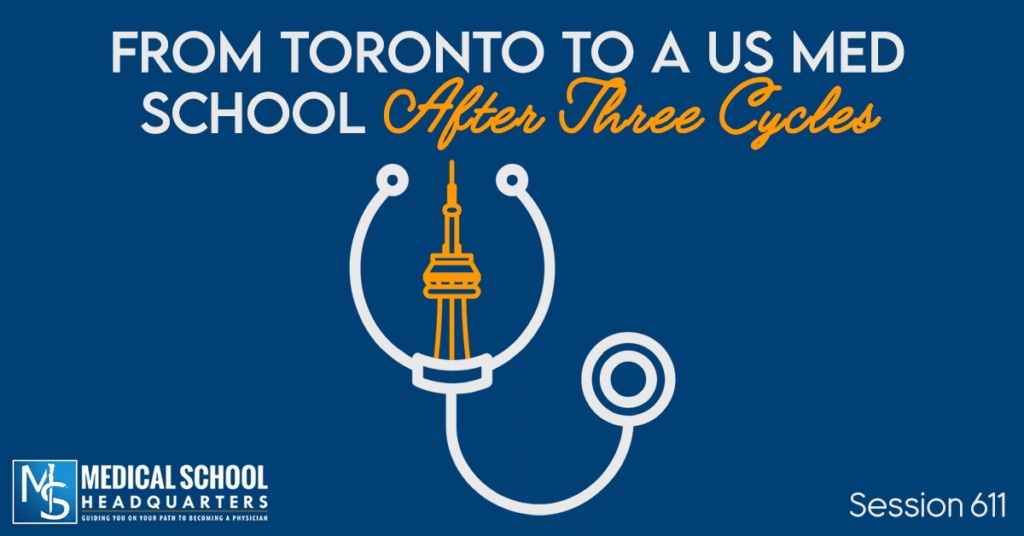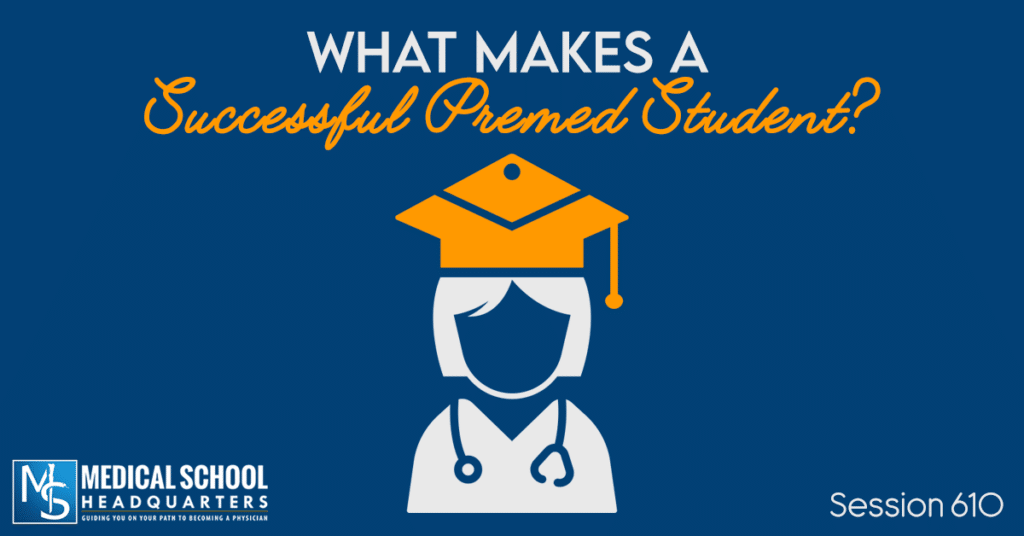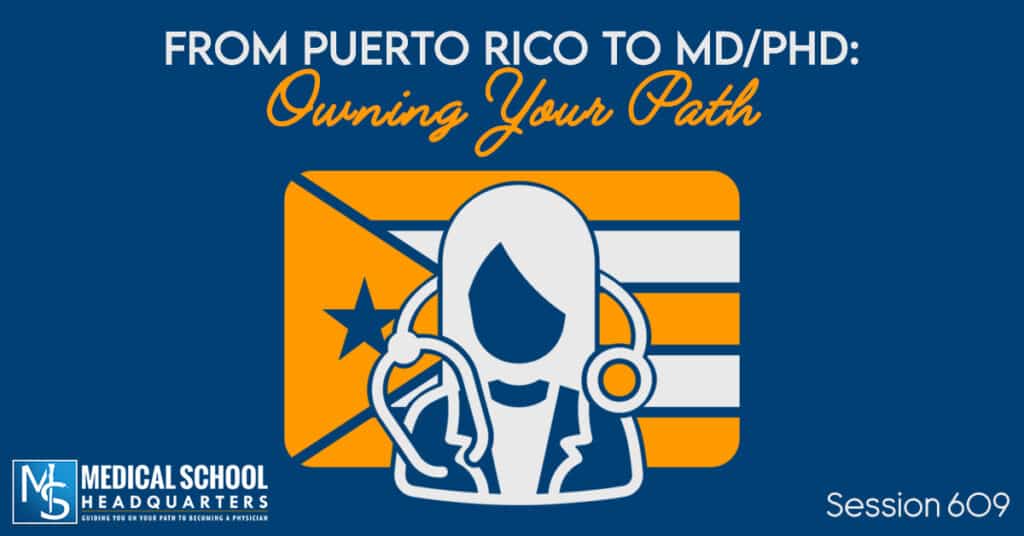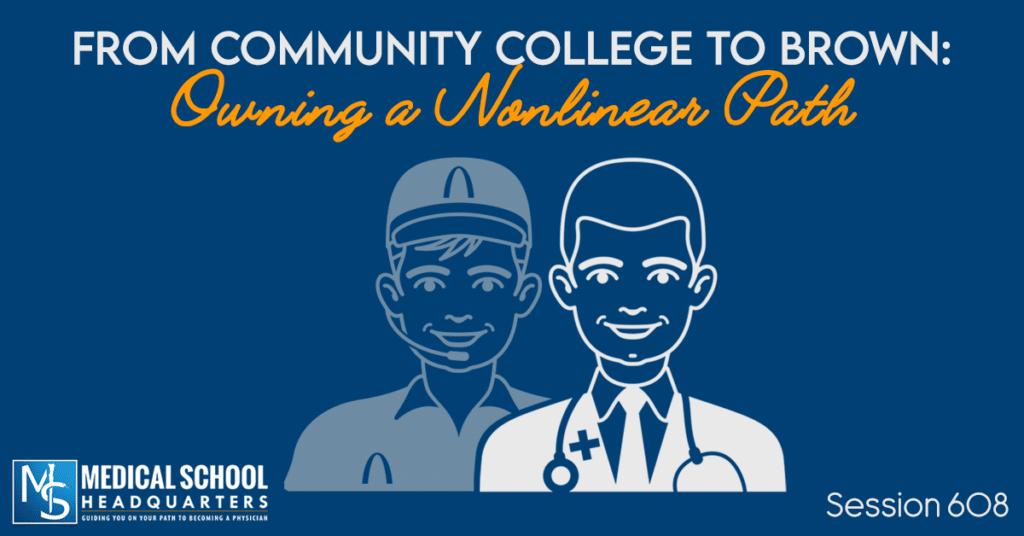Dr. Scott Wright, VP of Advising at Mappd, hosts the third episode of Inside Med Admissions and focuses on what students need to know about secondary applications. This month’s panelists were Dr. Lindsey Ridgeway, Associate Dean for Student Affairs, at the Edward Via College of Osteopathic Medicine (VCOM), and Dr. Felix Morales, the Associate Dean of Admissions at Texas Tech University Health Sciences Center School of Medicine.
What is the purpose of the secondary application, and how do admissions committees use them?
Drs. Ridgeway and Morales agree that secondary essays help committees understand whether a student is a good fit for the school’s mission. A medical schools’ mission may include rural medicine, research, serving the school’s local community, or other focuses.
Secondary essay prompts might also ask some of the same things discussed in interviews. Answering these questions twice allows the student to respond to them more deeply. Multiple opportunities to answer a question ensure everything essential is included. Secondary prompts also help schools understand what you’re passionate about and whether you have the resilience for medical school.
VCOM includes an ethical scenario in its secondary application. A student’s answer to this gives the committee a sense of how you “execute your integrity in your day-to-day life.” If your answer describes a time where you made a mistake, that is still beneficial. You have the opportunity to reflect on what you learned from that experience and what you would do differently if in that situation now. They also ask students about their growth areas are because identifying the aspects of yourself that you need to work on is a sign of maturity.
Do all applicants complete your secondary application, or do you only invite select students to complete it?
At Texas Tech, all applicants are sent the prompts and instructions for the secondary application around a day after their application is transmitted to schools by TMDSAS. The committee doesn’t review an applicants’ file until this secondary application is completed and received. This allows them to look at the entire application at once before sending an interview invitation or not.
VCOM does pre-screen students and only sends the secondary application to specific students. This screening process looks at factors other than GPA and MCAT scores. Part of this screening criteria is whether the student comes from or has completed undergraduate education in one of the school’s target regions. Screening students in this way prevents applicants from paying to complete further application steps if they are unlikely to want to attend the school or be admitted. The secondary application is also where students rank which of VCOM’s campuses they want to consider their application.
What advice would you give students when they are writing their secondary essays?
Proofread. You need to have at least one other person that you trust read over it for you to check for grammatical errors and spelling errors. If your essays are full of typos and other mistakes, it shows a lack of attention to detail. Paying close attention to quality and correctness in the writing and editing process are simple ways to make a good impression.
Be honest, even if the answer is that you struggled or made the wrong choice. If you could learn and grow from a hard time in your life or a failure, that shows resilience. In an interview, lying about your ties to an area or interests may be apparent, potentially leading to rejection. If you are accepted, you may be unhappy in that area, especially if nothing is drawing you to the state or city other than the school.
How do you use the secondary questions when building your class in the committee meeting?
The secondary application can be a tool to understand what would otherwise look like an anomaly or negative aspect of a student’s application. If you had a bad semester academically, you could elaborate on what led to that in your secondary application. VCOM asks if a student has had a lapse of two years or more in their undergraduate education and why that was. These essays allow you to tell the story behind your transcript.
Texas Tech may also revisit a student’s essay about their ties to the area because they expect students to want to practice where they’re from, and their mission is to create physicians to serve West Texas.
When should students fill out the secondary application?
You should return your secondary application as soon as possible after receiving it. To give yourself enough time to polish it, begin working on it as soon as you receive it. You can also pre-write responses to expected prompts. Some schools, like Texas Tech, will publish their prompts for the year on their website when their application service opens. For other schools, you can look to other premeds for the expected prompts or check our library of recent prompts here.
If you take a long time to complete your secondary application, you may need to explain why that was in an interview. Delays can raise red flags in an otherwise competitive application. A good general rule of thumb is to submit secondaries within the two weeks after receiving them.
At this point, the conversation opened up to questions from the audience watching the stream live.
Is it okay to mention a specific field of medicine in your secondary essay?
Be honest about your interest and goals when they’re relevant. If you talk about one particular specialty, also talk about the experiences that made you interested in it. Discussing your interests can also help a school know if they have the resources to help you achieve your goals. VCOM focuses on primary care, but 30% of their class goes into other specialties. They ask what students’ current interests are during the application process to ensure they can best support their students’ interests.
Should you disclose having used academic accommodations during undergrad, and if so, how do you go about it?
You’re not going to be asked about previous accommodations directly. If it’s relevant to the experience you’re describing or can help you answer the question more clearly, feel free to write about it. Students should also know that an interviewer may ask about anything you mention. If you’re not comfortable discussing something in an interview, don’t include it in your application.
Some schools may ask the same or similar questions. Can I write one essay for multiple schools?
You can write one essay to a common theme and then tweak it for a particular school. You want to avoid including the wrong school name in your essay when you do this. Also, make sure to reread that specific school’s prompt and make sure you’re still answering the particular question they’re asking.
How do secondary applications contribute to a student’s file with “lower stats”? Is there a point where it’s not worth it to submit the secondary application?
At schools that screen for secondaries, you can feel more confident that you have a chance of acceptance if sent a secondary prompt. You have already met their basic requirements. Not all schools have cutoffs or report them. Secondary essays allow you to explain your stats and to show that you’re more than a number.
Find discussion of common prompts and read secondary essays from first to final draft in The Premed Playbook Guide to the Medical School Application Process.






